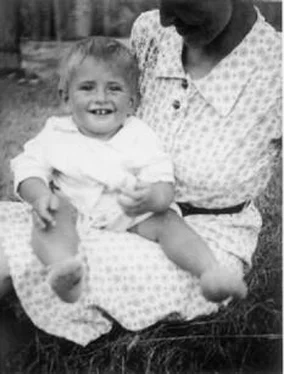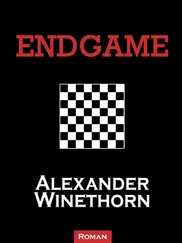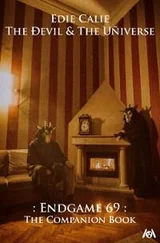Bobby was making his debut among the elite chess fraternity of New York. They observed that unlike most beginning players (although he wasn’t really a beginner; he’d been playing at the Brooklyn Chess Club for four years, since he was eight) Bobby could see the totality of the board. It wasn’t that he made the best choice each and every move, but he was almost never forced into playing or being on the receiving end of a one- or two-move unsound combination: a “cheapo,” the term for a “cheap move.”
Shipman, who was rated among the top twenty players in the United States, grasped the boy’s potential. Eagerly, he played him a series of blitz games at one second a move, and Bobby won about a third of them. Shipman remembered: “I was so impressed by his play that I introduced the 12-year old to Maurice Kasper, the president of the club and a millionaire garment maker, whose beneficent offer of a free junior membership was immediately accepted by Bobby.” Bobby became the youngest member in the club’s history. Kasper told him that he could come every day if he wished. Bobby beamed. He was like a little kid being set free in a candy store.
The Manhattan Chess Club was the strongest chess club in the country and the second oldest. It was founded in 1877, three years after the Mechanics’ Institute Chess Club of San Francisco, and for many years it included almost every great player that the United States produced. Chess enthusiasts from out of town and even from other countries, hearing of the club’s almost mythic history, moved to New York just to become members of the Manhattan, to improve their skills and have a chance to play against the greats. Its popularity was analogous to the way artists flocked to Paris in the 1920s to hone their craft under the tutelage of the masters there. The club had been the site of two World Championship matches (Steinitz-Zukertort in 1886 and Steinitz-Gunsberg 1890–91) and had hosted the annual United States Championship tournament since the 1930s. A preponderance of the members were Jewish, a group that had pursued the game for centuries and was highly proficient at it. More than one million Jews, most of them immigrants, lived in New York City at that time, and many had brought with them their love for chess. In 1974, Anthony Saidy wrote in The World of Chess that “perhaps half of all of the greatest players of the past hundred years have been Jews.” When asked whether he was Jewish, Bobby replied, “Part. My mother is Jewish.”
On the rare occasions when no worthy opponents were available at the Manhattan during the daytime, Bobby would wander into Central Park and play under the open sky at the stone chess tables near the Wollman skating rink. During one long, exasperating endgame, it began to rain, and neither he nor his opponent would let the storm stay their appointed task of finishing the game. Bobby thought and played, pondered and moved, all the while becoming drenched. When he finally arrived home, his clothes soaked, his sneakers squeaking and swishing water, and his hair looking as if he’d just stepped from a shower, Regina was furious. But her anger never lasted long.
The Manhattan Chess Club was organized into four groups, based on playing strength. The strongest was the rarefied “A” group where the masters and experts resided; then there was the “A-Reserve,” consisting of potentially strong players, followed by the “B” group and finally the “C” category, which incorporated the lowest-rated or weakest players, many of whom were hoping to work their way up the ladder. In the first few weeks of his membership, Bobby enrolled in a tournament for C players and won it easily. He advanced to the B group and played tournaments within that section until he eventually won and was promoted to the A-Reserves. Ultimately, in not quite a year, he finished first in that group as well.
Soon he was going to the club every day, staying there from early afternoon until late at night. Regina wanted him to go to summer camp as he had before, but Bobby wouldn’t hear of it. For him, the Manhattan Chess Club was nirvana, and although he hadn’t yet developed a grand plan about dedicating his life to chess, he loved the feeling of winning and wanted to be near the game all the time. The Brooklyn Chess Club only afforded him the chance to play on Friday nights and an occasional Tuesday—the two nights of the week they met—for a total of about four hours on any given evening. At the Manhattan, though, he could play twelve hours a day, seven days a week.
The game not only engaged Bobby’s mind, it tempered his loneliness, and while playing, he felt more alive. Since it was the summer and there was no school, he’d rise late, after his mother and sister had left the apartment, eat breakfast alone at a diner, and take the subway into Manhattan to go to the club. Regina would constantly monitor him, bringing him liverwurst sandwiches wrapped in tinfoil and a container of milk for dinner, lest Bobby, engrossed in his games, skip his evening meal. At about midnight every night, she’d appear at the club and almost have to drag him back to Brooklyn, the pair taking the one-hour subway ride home together.
Throughout that summer and during the next few years, Bobby began making chess friends at the club. At first his friendships were mostly with older players—but perhaps as a result of Bobby’s now being a member, or because of a shift in the club’s policy, promising players Bobby’s own age or just a few years older were permitted to join, and these, finally, were children he could relate to. Many would remain lifelong friends or competitors-in-arms. William Lombardy, who’d go on to win the World Junior Championship and enter the pantheon as a grandmaster, was six years older than Bobby and at first beat him most of the time. He was an intense and brilliant young man who possessed a great positional sense. Bernard Zuckerman, who was almost as studious as Bobby in analyzing games, especially the strategy of opening moves, was born just days apart from Bobby and ultimately would become an international master. Asa Hoffmann—like Bobby, born in 1943 and the son of two Park Avenue lawyers—became a master and was also adept at other board games, such as Scrabble and backgammon, in addition to chess, and acquired a reputation as a “money” player: that is, his ability often increased in proportion to the wager or prize. Jackie Beers, a short young man with a charming smile and a ferocious temper, earned Bobby’s respect because Beers could sometimes hold his own with him in speed games; and James Gore, a tall redheaded boy who dressed conservatively even as a teen and who adopted a condescending attitude toward anyone he defeated, had a great influence on Bobby. All of these young players would eventually be surpassed by Fischer, but they tested him with daring alternative variations, and his play sharpened as a result.
Bobby would play as many as a hundred speed games against his friendly foes on any given day. Eventually, as the boys blossomed into their teens and then became young men, Bobby emerged as a leader of sorts: Whatever he wanted they gave him; wherever he went they followed. “One more,” he’d say voraciously, setting up the pieces, and no one refused him. Dr. Stuart Margulies, a master, who was several years older than Bobby, said in retrospect, “I adored playing with Bobby, just adored it!” Playing with Bobby was like reading the poetry of Robert Frost or taking a long hot bath. You came away feeling better for it. Perhaps you learned something, or perhaps the concentration required calmed you, even if you did lose a preponderance of games. Players would often smile when they resigned a game to Bobby, showing admiration for his brilliance.
One of the first grandmasters whom Bobby met at the club was Nicholas Rossolimo, the U.S. Open Champion and former champion of France. The day they met, Rossolimo was sitting on a sofa, eating a bagel with lox and cream cheese, and he spoke to Bobby with his mouth full. Because of that—and Rossolimo’s pronounced accent—Bobby couldn’t understand a word. Nevertheless, the boy was impressed at being in the presence of a champion, and awed that Rossolimo would deign to talk to him, mumbler though he was.
Читать дальше


![Антон Текшин - EndGame [СИ]](/books/394477/anton-tekshin-endgame-si-thumb.webp)









